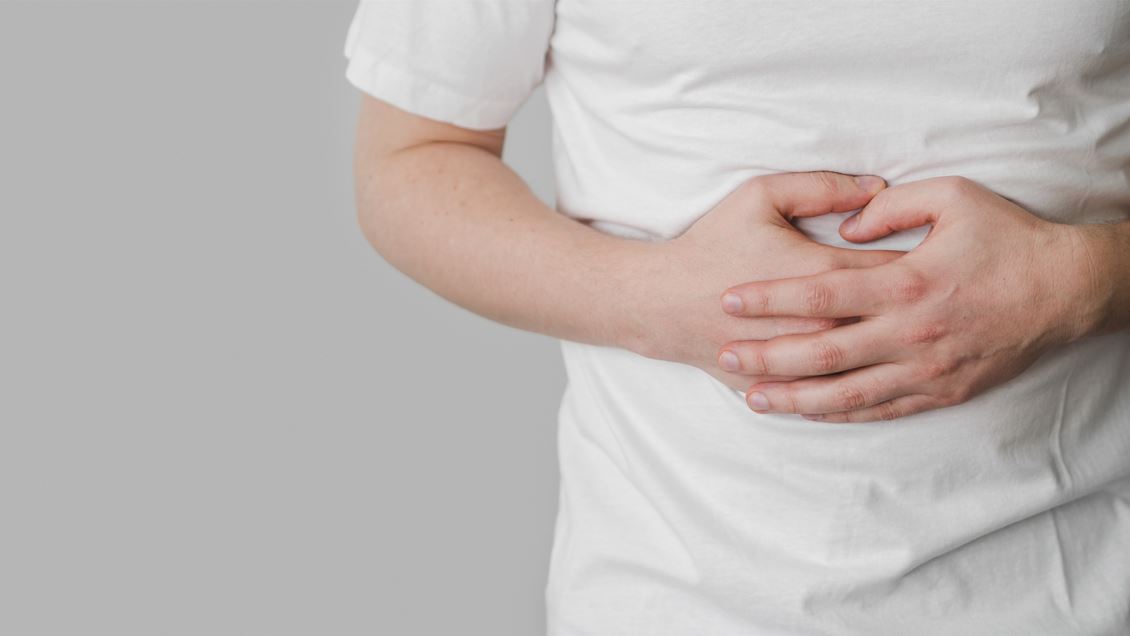In this segment of a recent video interview, Dr. Julie Monica discusses GERD or esophageal reflux disease. What it is, the mechanisms in the body, how symptoms make you feel and what some of the risk factors are for the development of this and related illnesses.
GERD flares
Gerd stands for gastro esophageal reflux disease. Remember that disease means this is we are not at ease with our bodies. Dis-ease. This is a real common one.
Let’s just talk about some of the frequent causes of reflux.
The mechanism when you swallow food is there’s a muscular circular band around the bottom of your esophagus and that’s the tube that goes all the way down. The lower sphincter relaxes to allow food and liquid to flow into your stomach, and then it’s supposed to close after the food goes into your stomach.
So what happens is that sometimes and for some people, it doesn’t close properly or it’s damaged.
What are the symptoms of GERD?
Some of the signs that we might have to try to indicate that we have gastro esophageal reflux is that a burning sensation in your chest or what we often think of as heartburn. You feel it after eating and it might be worse at night. Why? Because you know, when we’re home after work, or even in the holiday, where we tend to eat more in the evening and we’re reclining, we’re laying down. When we are full and laying horizontally, the food can not get down into the stomach and we’re not digesting it properly. It lays around and this can bring on those symptoms.
There can be a regurgitation of the food or sour liquid sensation. You might also experience the feeling of a lump in your throat. If you’ve ever had that and thought, “Oh my gosh, why am I feeling this way when I eat? And I’m kind of feeling like I can’t swallow it.” That could be the issue you are dealing with.
If you have nighttime reflux, you also might experience chronic laryngitis, so that you are confused about what’s wrong with your voice lately. It can also affect your breathing and potentially induce a chronic cough. Even going so far as to develop new or worsening asthma.
Previously, if you would come in to the doctor with symptoms of asthma and laryngitis and things up in here speaking and breathing, the medical community wasn’t really connecting it with a problem of food that the patient was eating. The fact is that we now know that if we’re sensitive to food, it can add to those symptoms. And also remember, if you’re sensitive to it, as soon as you eat it, it’s going to inflame and irritate that tissue around your throat and the beginning of your digestive tract. Those are some new things that doctors are finding that they’re that they were a little bewildered about before. And I do see this a lot, for sure.

When to Seek Professional Treatment
Remember if you’re experiencing these kinds of things more than two times a week, and you’re taking over the counter medications two or more times. Maybe it’s time to have a follow up with some sort of practitioner to rule out any other issues that may be going on before they get worse. So let me just throw that in there.
What Risk Factors Make GERD Worse?
So many aspects of our lifestyle connects to our health in general in many different ways. Let’s talk about risk factors that make this condition even worse. So what do I mean by that? Well listen to some of these factors that are not good for this situation, this disease, but for so many other things.
That is obesity, bulging of the top of the stomach, which is called a hiatal hernia, connective tissue disorder, or scleroderma, or lupus. Delayed stomach emptying, where the stomach is full. Therefore, there’s a backup where it would stay and that’s going to happen because you have generally not a good digestive system going on. Not a good GI situation.
Also pregnancy can increase GERD symptoms as well. What do those things have in common? They’re all restricting that tube.
What is a hiatal hernia? There’s a very thin muscle that goes wide across the middle lower area of your ribs. You can have a hernia just like in any other muscle, and something might pop up through that. Typically a portion of your stomach will come through just a bit, and that’s right next to the sphincter which might squish it. Pregnancy might squish it – anything that compromises the tube, if you will. Those things though, should come and go as a hiatal hernia can be managed. Pregnancy comes and goes. So these things are temporary, but they do exacerbate the situation and sometimes, people don’t even feel anything until they have get in those conditions of life.
chronic inflammation will make GERD worse
Chronic inflammation of the esophageal tissue can cause damage to the esophagus. Over time the will occur because of the restriction from these things and the consistently inflamed tissue and what we’re eating is going through it the bottom and is not closing properly, causing the acid to either come back up. The situation will not improve when we continually bombard the esophagus with non food that is it’s harmful to the tissue.
Damage to the lower esophagus from the stomach acid can cause scar tissue so that the tissue actually gets scarred so that it’s not performing its duty. Scarred tissue doesn’t have the the ability to readily contract and expand as it should. The sphincter muscle, and all the muscles used in digestion, are amazing if you think about what happens when you swallow. It just takes the food like a little conveyor belt right down to the stomach. Well, scarred areas can have a negative impact on that process.
Continued insults can lead to an esophagus ulcer. And there’s Barrett’s disease, which I’m seeing more often in my practice, today. They call this a precancerous condition.
I’ve had many people tell me they were diagnosed from the GI doctor with Barrett’s esophagus, and are here in our office to deal with that. Food is both the cause and the solution.
What are some factors that tighten the esophagus? Some of the things that aren’t going to make our tissue happy are:
- smoking
- eating large meals
- eating late at night
- eating certain foods that trigger you, such as fatty or fried foods
- drinking certain beverages such as alcohol and coffee
- taking certain medications like aspirin
These are things that people do as part of their daily lifestyle. Those drinks are offsetting the balance of taking in water. So on top of that, we’re a little dehydrated and none of our cells are happy when we’re dehydrated. And so that also sets up conditions that actually aggravate GERD, heartburn and reflux.
We’re gonna shout out to Tums because basically, you can find it anywhere. It’s mostly made out of calcium carbonate and it really does work in that situation.
So in this article we went over what GERD is and what irritates the tissue lining and then what also can be a predisposing factor.

